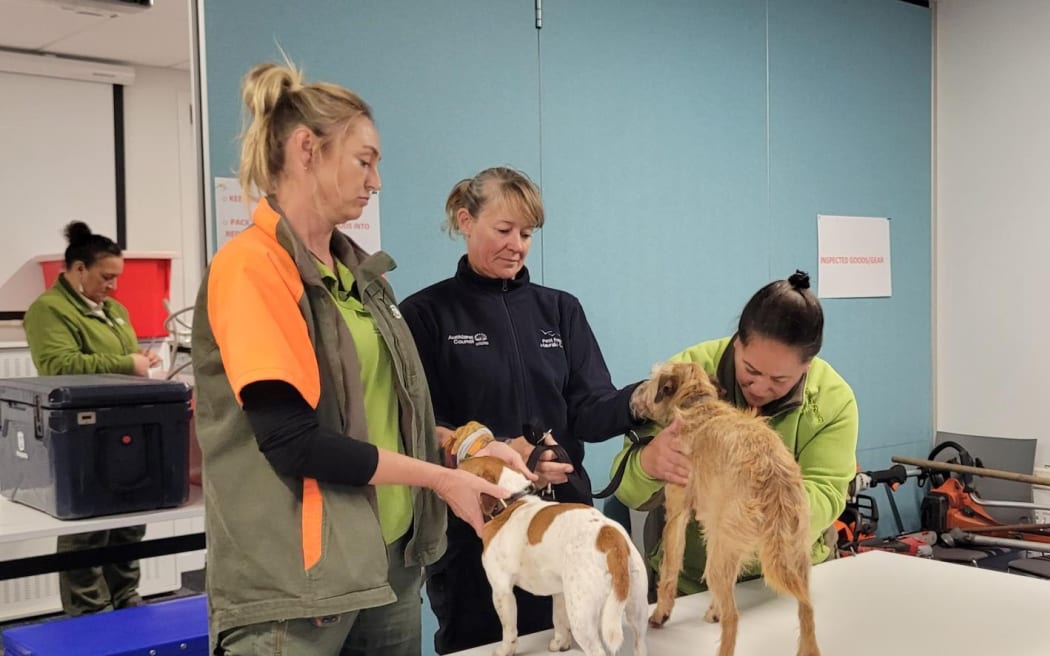
Photo: Supplied / Department of Conservation
Two highly trained rodent detection dogs headed out to the Hauraki Gulf this week, to make sure certain islands in the area remained predator free.
Mokohinau and Rakitū islands near Great Barrier are visited once a year by the conservation dogs, who are trained to find any traces of rodents, dead or alive.
Department of Conservation (DOC) operations manager Kirsty Prior said they did not expect to find any traces of pests but they could not afford to be complacent.
"We don't expect to find anything and we're super happy when we don't. The islands are nature reserves ... most of them you can't land on because they have such precious endemic species, species found nowhere else in the world in some cases."
DOC also visited the islands every three to four months to set up tracking tunnels with peanut butter on them to find any trace of predators, Prior said.
The quicker they could identify any potential predators, the more species they could preserve.
DOC ranger and dog handler Adeline Bosman said she had to be in tune with her canine companion to understand its signals.
"When Pru detects her target scent, her behaviour changes noticeably. She initially freezes and looks at me, then becomes very animated."
When Bosman was not in the field, she aimed to train five hours a week with Pru, so that they were a tight team.
Rakitu Island was declared predator-free in 2020, after a rat eradication two years before.
Pokohinu island - in the Mokohinau group, has been pest free since 1990, while other islands in the group have never had rats and are home to especially vulnerable species.

